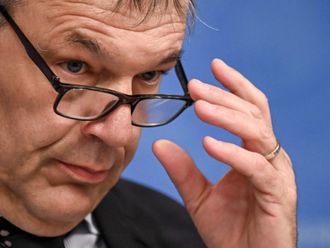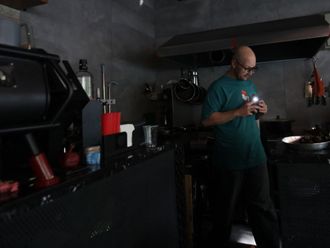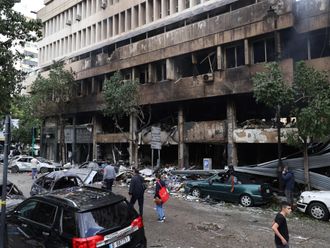Washington: The CIA launched a secret programme in 2005 designed to degrade Iran's nuclear weapons programme by persuading key officials to defect, an effort that has prompted a "handful" of significant departures, current and former US intelligence officials familiar with the operation say.
The previously undisclosed programme, which CIA officials dubbed "the Brain Drain," is part of a major intelligence push against Iran ordered by the White House two years ago.
Intelligence gathered as part of that push provided much of the basis for a US report released last week that concluded the Islamic regime had halted its nuclear weapons work in 2003. Officials declined to say how much of that intelligence could be attributed to the CIA programme aimed at recruiting defectors.
Although the CIA effort on defections has been aimed in part at gaining information about Iran's nuclear capabilities, its goal has been to undermine Iran's emerging atomic energy capabilities by plucking key scientists, military officers and other personnel from its nuclear roster.
The programme has had limited success. Officials said that fewer than six well-placed Iranians have defected, and that none has been in a position to provide comprehensive information on Iran's nuclear programme.
The CIA effort on defectors reflects the urgency with which the US government has sought to slow down Iran's nuclear advances. It was described by officials on condition of anonymity because of the sensitivity of the effort.
The White House ordered the stepped-up effort in hopes of gathering stronger evidence that Tehran was making progress toward building a nuclear bomb. The Bush administration "wanted better information" on Iran's nuclear programmes, said a US official briefed on the expanded collection efforts.
"I can't imagine that they would have ever guessed that the information they got would show that the programme was shut down," the official said.
That was the central finding of the comprehensive intelligence report released last week. The National Intelligence Estimate on Iran contradicted previous intelligence assessments and undercut assertions by the Bush administration.
The new estimate on Iran, which represents the consensus view of all 16 US intelligence agencies, also concluded that Tehran "at a minimum is keeping open the option to develop nuclear weapons" and continuing to pursue civilian nuclear energy technologies that could help Iran make a bomb.
A CIA spokesman declined to comment on the effort to lure defectors.
The Bush administration's decision to step up intelligence collection on Iran in 2005 was a reversal from a position the White House took after Bush was first elected.
The defector programme was put in place under then-CIA Director Porter J. Goss. The agency compiled a list of dozens of people to target as potential defectors based on a single criterion, according to a former official involved in the operation: "Who, if removed from the programme, would have the biggest impact on slowing or stopping their progress?"
In the two years since it was launched, the programme has led to carefully orchestrated extractions of a small group of Iranian officials who operated in the mid- to upper tiers of the Islamic regime's nuclear programmes.
None of those who defected was considered essential to the nuclear programme, nor were they in position to provide comprehensive descriptions of Iran's efforts.
"Did they have replacements for these people? Any country would have," the former official involved in the operation said. "But we did slow the programme."
Officials declined to discuss the whereabouts of the defectors, or details regarding the methods used to approach them. The former senior US intelligence official said potential defectors have not been approached directly by the CIA, but through other contacts the agency has cultivated inside the country.
Officials in the National Security Council urged the CIA to make the programme as broad as possible, and to spread word through Iranian networks the United States was prepared to help officials leave the country and relocate.
But CIA officials fought to keep the programme narrowly targeted to avoid calling it to the attention of Iran's intelligence service. Even at that, CIA officials assumed that Iran's service was keeping close watch on key officials in the nuclear programme, and that potential defectors could be decoys.












